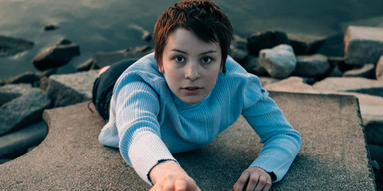
Gov McKee’s Vaccine Mandate Sidelined 1,300 Healthcare Workers; DOH Greenlights COVID-Positive Healthcare Workers
Governor Dan McKee implemented an inflexible COVID-19 vaccine mandate on Rhode Island’s healthcare workers in the midst of a healthcare worker shortage. How much did the mandate exacerbate under-staffing? Director of Health Dr. Nicole Alexander Scott was asked this at a press conference on November 16.
“It’s a contributing factor that is small in the grand scheme of things,” Alexander-Scott said, noting that Rhode Island is at 98% compliance with the state’s vaccination policy.
98% of healthcare workers in the state had gotten vaccinated. So 2% did not get vaccinated. Two percent of 65,000 comes out to 1,300 healthcare workers involuntarily removed from their jobs by Governor McKee’s vaccine mandate.
Contacted by Anchor Rising on December 29 about this, the office of Governor Dan McKee did not offer comment. The office of Rhode Island Director of Health, Dr. Nicole Alexander Scott, replied,
Healthcare facility administrators have reported to us that the healthcare worker vaccination requirement has helped stabilize the workforce because less illness among staff means fewer people having to isolate and quarantine (and miss work). For this reason, the major health systems in Rhode Island put healthcare worker vaccination requirements in place before the State enacted a regulation statewide.
But this does not altogether address the crux of the matter, which is that the vaccine mandate itself has “destabilized” the workforce by removing 1,300 healthcare workers. Let’s stipulate that the number of vaccinated workers is, in fact, 98% and not a lower number, which would increase the number of workers sidelined. Governor McKee and Director Alexander Scott have involuntarily removed 1,300 workers from an already short-staffed healthcare system during a pandemic on the basis of a rigid mandate that was implemented without an analysis as to its impact on public health.
1,300 is not a “small” number on its face. Further, in the absence of an analysis, there is no basis to assert that 1,300 fewer workers is just a “small” contributing factor to the state’s serious healthcare short-staffing problem.
Now it is clear that it was not. Kathy Gregg at the Providence Journal yesterday broke the disturbing news that the Rhode Island Department of Health had established and issued guidelines, obtained by Gregg, on December 30 for COVID-19 positive healthcare workers to work at hospitals and nursing homes.
Governor McKee and his Department of Health now need to explain, carefully and with specificity, how it can be that COVID-positive healthcare workers pose less of a risk to patients, long-term care residents and the overall public health than 1,300 healthy ones.
Featured image by Noah Buscher on Unsplash

Yet another knee jerk politically motivated decision. RIDOH and other government agencies have learned nothing from the past 23 months. How could anyone with a conscience place Covid positive healthcare workers in hospitals and nursing homes with our most vulnerable population? They have ignored early intervention with repurposed drugs and continue to push a shot that isn’t even affective against omicron variant. They are a day late and a dollar short once again!
[…] can with a clear conscience now lift the vaccine mandate on healthcare workers. That would enable 1,300 workers to return to a badly shortstaffed healthcare system and allow one oral and maxillofacial […]
[…] Governor Daniel McKee’s vaccine mandate for healthcare workers — which Monique Chartier estimates drove 1,300 professionals out of their jobs during a shortage in their line of work — Rianna […]